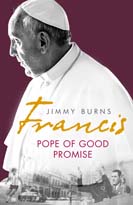I am thinking Brexit- or not. In moments of doubt and darkness, I find myself not for the first time rereading Graham Greene, a fellow Catholic who struggled throughout his life with no small number of existential and political crises of his own, and yet still managed to draw sufficient creative inspiration and faith in God and humanity as an author and journalist.
In a review of Postscripts published in the Spectator on the 13th December 1940, Greene paid tribute to the way the novelist J.B. Priestley’s broadcasts lifted the spirit of the British people in their hour of darkness after the collapse of much of continental free Europe.
Following the disaster of Dunkirk when the British army was “driven off the Continent of Europe with a shattering loss of men and material”, his broadcasts “began to lead the way out of despair.”
As Greene relates, in the months that followed Dunkirk, J.B. Priestley , a man instinctively of the left but non-doctrinal, became a leader second only in importance to Churchill: “he gave us what our leaders have always failed to give us –an ideology.”
What Priestley gave the British people and indeed any other European who wished to tune in, was the idea of two orders: “the Nazi and our own, in simple terms, as moving as poetry, and his Sunday broadcasts gave far more confidence in the future than the inclusion of a few Labour men in the Cabinet.”
Churchill let us not forget had, in the interest of the nation , of a Free Europe, and his own survival as prime-minister, formed a wartime coalition with Tory and Labour ministers, representing a broad Church of political opinion.
As Greene put it, commenting on Priestley: “Self-Preservation is not the deepest instinct: we have learnt from childhood the Christian doctrine of the greater love.”
Priestley talked of Nazism not so much as a political philosophy but as an attitude of mind, the expression in political life of a certain unpleasant temperament, “of the man who hates democracy, reasonable argument, tolerance, patience and humorous equality…”
In no time angry letters were flooding the BBC, accusing Priestley of dividing the country after he had criticised, among others, those ‘who, for years, had been rotten with unsatisfied vanity”.
On the 20th October 1940, after five months of broadcasting, Priestley was taken off the air and his talks finally cancelled the following year.
It was thought that this followed a complaint from Churchill that he was too left-wing, although Priestley’s son many years later blamed members of the wartime cabinet for supplying the prime-minister with negative reports about the novelist.
And yet how worth remembering seems Priestley in the times we currently live , not least over the unresolved issue of Britain’s future relationship with Europe. I am not sure what I find more alarming : to hear that the hard Brexiteers are happy to have the UK crashing out of the EU, and risking undermining not just the British economy but peace on the island of Ireland, or the similar total lack of magnanimity, humility, let alone honesty shown by hard-nosed Corbynistas who “confine” Labour break-away MP’s to the “dustbin of history” as if raising concern about anti-Semitism and the failure of the leadership to embrace Remain as the only sane political outcome, was not worthy even of discussion.
In the Rees-Mogg and Corbyn teamsters , not to mention Nigel Farage et alia, Priestley, were he alive today, would no doubt have have found those “rotten with unsatisfied vanity”, or worse.
For in their discourse and attitude, both camps show no tolerance, let alone patience, and arguably little respect for democracy- for otherwise how could they continue to ignore the fact that no one knows really knows if there still a majority for Brexit or against any more, and that this can only be tested by a sufficient extension of article 50 to allow for another people’s vote which would involve giving the British people two clear options of vote: a Brexit as voted by a majority in parliament, or Remain.
For such a vote might well focus minds not just on self-preservation but what serves the common good , something that should matter to all true democrats currently in the European Union.
As one of the more reasonable commentators on the issue Timothy Garton Ash wrote this week: “ As in 1940 the battle of Britain and the Battle of Europe are one and the same. It’s not good Europeans on one side and bad Europeans on the other; its pro-EU versus anti-EU on both sides of the Channel.”
When he was forced off the air, Priestley had his own ‘black dog’ moment of despair. “The high generous mood, so far as it affects our destinies here , is vanishing with the leaves, “ he said.
But it is early Spring and the blossom is flowering in Britain and across Europe. My hope is that reasonable men and women in the British parliament and in Europe will prevail against the forces of hard-right nationalisms-but we need more poets like Priestley to lift our spirits and politicians capable of leading beyond narrow party interests.


Comments